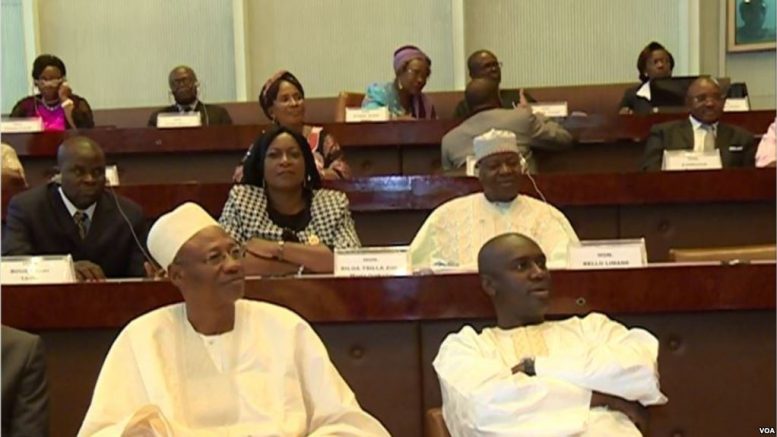YAOUNDE — The U.N. special envoy for Central Africa visited Cameroon this week to seek an end to the months-long stalemate on the strike and unrest in English-speaking parts of the country.
Francois Lonseny Fall, the special representative of the U.N. secretary-general and head of the U.N. Regional Office for Central Africa, called on the government of Cameroon to take two steps to facilitate the reopening of dialogue with strikers in the English-speaking regions.
The United Nations cannot be indifferent when there are issues that could threaten the peace and stability of a sovereign state, he said, recommending that all detainees be liberated. He said the U.N. believes that if detainees are freed, peace will quickly return to Cameroon.
He also reiterated the U.N.’s call that the internet is reinstated in the northwest and the southwest. He called the internet blackout a violation of the freedom to access information.
Government spokesperson Issa Tchiroma declined VOA’s request for comment on the special envoy’s Wednesday statement but said President Paul Biya is aware of the situation.
The government has announced some reforms to address the strikers’ grievances, but talks broke down earlier this year after the government refused to release detainees. Dozens of people have been arrested in connection with the strike, including three activist leaders currently on trial for charges related to violent unrest in December. If convicted, those three leaders could face death sentences. Schools remain closed in the affected areas; the internet was cut in January.
Tensions began in November when English-speaking lawyers and teachers in the two regions refused to work, demanding reforms. The situation intensified as the strike pulled other activists who say the country’s English-speaking minority is marginalized and those regions should declare total independence.
Biya has ruled out any discussion on the question of national unity.
The U.N. special envoy told reporters that the U.N. will not get involved on questions of secession or a return to federalism in Cameroon. He said Cameroon has strong institutions and a functioning democratic parliament to address political matters.
– Moki Edwin Kindzeka I VOA

